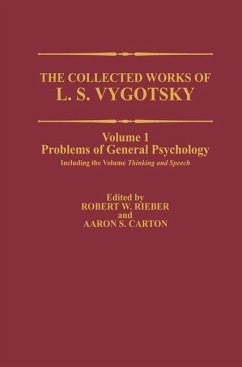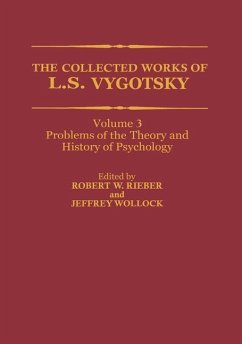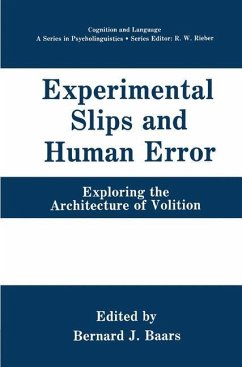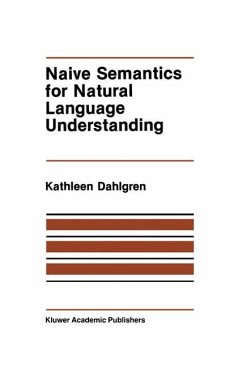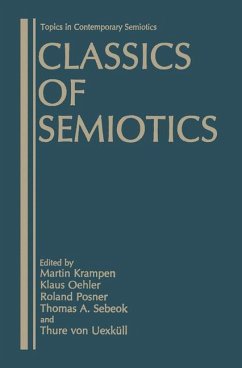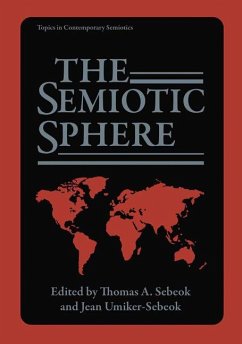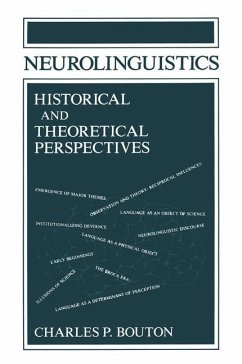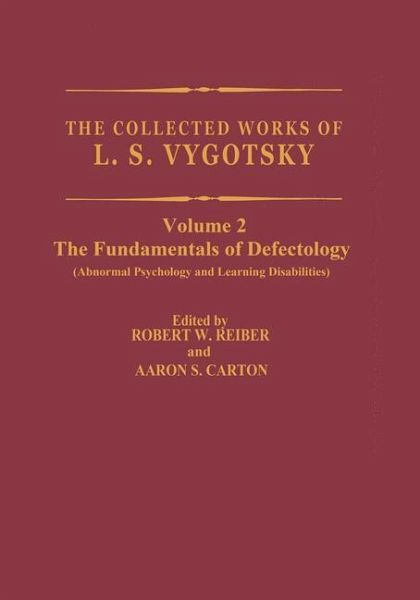
The Collected Works of L.S. Vygotsky
The Fundamentals of Defectology (Abnormal Psychology and Learning Disabilities)
Herausgegeben: Rieber, Robert W; Carton, Aaron S.
Versandkostenfrei!
Versandfertig in 1-2 Wochen
229,99 €
inkl. MwSt.
Weitere Ausgaben:

PAYBACK Punkte
115 °P sammeln!
This work is a translation of Volume 5 of Pedagogika's 6 volume series published in Moscow between 1982 and 1984. It includes Vygotsky's works on defectology originally published between 1924 and 1932, as well as posthumous, unpublished material.
vi the text can engender. Of course, translations by scholars of advanced standing are not a novelty in modern scholarship. The Plenum translations ofVygotsky' s texts are appearing at a moment when authentic and authoritative English versions of them are rare-a moment when the frequency of works about Vygotsky threatens to outstrip the availability of work by Vygotsky. Since seminal thinkers make their contributions by provoking further thought, admirers ofVygotsky will, of course, welcome the spate of interpretation, reinterpretation, revision, reconstruction, and deconstruction which Vygotsky's work has invited and will participate with alacrity in the activity. Yet, the translations appearing in these volumes are not offered as interpretations in the sense that they are new analytic works about Vygotsky. They are offered to serve as basic texts for readers of English who may be interested in what Vygotsky himself had to say. They are offered to scholars and students, who willmake their own interpretations (in its broader sense) and who will evaluate the interpretations of others. Having taken the view that a good translation is essentially an interpretation, the claim that this volume is an accurate and authentic interpretation of Vygotsky's meanings and intentions-and only of those meanings and intentions-must await hoped-for reassurances from those reviewers and critics who are qualified to make such judgments.





